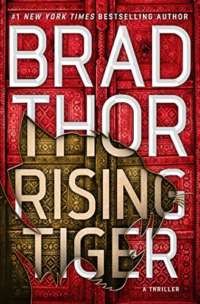
Rising Tiger by Brad Thor
There’s nothing wrong with a writer deciding to stretch his or her legs a bit, even if that writer is a #1 New York Times bestselling author like Brad Thor who does just that in his groundbreaking Rising Tiger (Atria). I say groundbreaking because I can’t remember the last thriller of this level to be set in India. That’s where Thor’s series hero Scot Harvath is dispatched on the pretext of digging deeper into the killing of an old friend. Of course, there are no friends in the dark world Harvath inhabits, just associates and assets. So it’s no surprise that the murder in question is connected to a conspiracy that can be thwarted only if the Indian and US governments work cooperatively, with the future of democracy in the Western world at stake. Thor writes like a magician, directing our attention to India when the eyes and imaginations of other thriller writers are all trained elsewhere for villains and dastardly plots. We get both of those in Rising Tiger, the kind of relentless and riveting page-turner either Alistair McClean or John le Carre would be writing today if they were still alive.
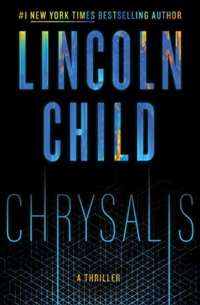
Lincoln Child by Chrysalis
Regular readers of this column know how much I enjoy books by the stalwart team of Lincoln Child and Douglas Preston. Well, I enjoy Child’s standalone books just as much, the latest of which is Chrysalis (Doubleday), a marvel of a contemporary techno-thriller. Chrysalis is a company on the global scale of Apple, Google, and Tesla that’s responsible for a cutting-edge tech device known as, The Venture. Think of an iPhone on steroids, truly world-changing, in other words, until things begin to go wrong. That’s when professional problem solver Jeremy Logan is called in. What he uncovers about both The Venture and Chrysalis turns his investigation in another direction, risking his own life to potentially preserve our way of life as we know it. Chrysalis combines the high-tech jargon of Michael Crichton with the storytelling chops of James Rollins, a book destined to be hailed as this generation’s Jurassic Park and just as far ahead of its time.
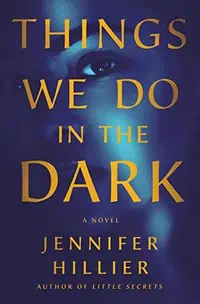
Things We Do in the Dark by Jennifer Hillier
Jennifer Hillier treads on the hallowed ground of Harlan Coben and Lisa Gardner with Things We Do in the Dark (Minotaur), having fashioned a splendidly dark tale of life in the suburbs turned upside down.
That’s what happens to Paris Peralta when she’s arrested for murder in her own bathroom where her husband lies dead in the bathtub. But would you believe that’s not even her biggest problem? Apparently, Paris is not who everyone in town thinks she is and has gone through great lengths to bury the person she used to be for good reason. If that truth gets out, getting accused of murder will be a cakewalk compared to what she might face and must prevent at all costs.
With her latest, Hillier continues to establish herself as a master of misdirection, making us look one way while the real action is going on somewhere else. As with the aforementioned Coben and Gardner, you literally have no idea what’s going to happen next, helping to make Things We Do in the Dark a psychological thriller extraordinary.
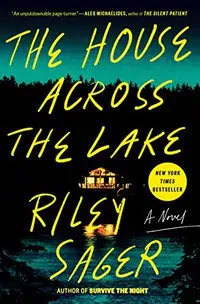
The House Across the Lake by Riley Sager
Speaking of terrific psychological thrillers, look no further than Riley Sager’s The House Across the Lake (Dutton).
Novelist Thomas Wolf once famously wrote that, “You can’t go home again.” That’s the lesson awaiting actress Casey Fletcher when she returns “home” to a sprawling lake house in Vermont as a recent widow and latest object of the press’s scorn. What follows would appear to be perfect fodder for Casey’s next role, specifically pertaining to her neighbors: Katherine and Tom Royce, a wealthy young couple across the lake. But from the time Casey (apparently) saves Katherine from drowning, we’re treated to a gradual undoing of both appearances and Casey’s psyche.
The House Across the Lake is one of those books where subtext rules the day, specifically the “Rear Window”-like voyeurism that inserts Casey into the Royces’ lives while revealing her own vulnerability. A specialist in writing about angst, Sager once again proves himself up to the task in crafting a masterpiece of suspense.
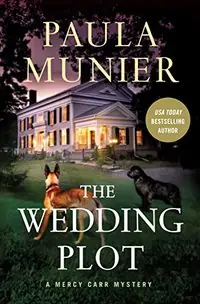
The Wedding Plot by Paula Munier
On the surface, Paula Munier’s The Wedding Plot (Minotaur) might appear to sound like an extended cozy, but that’s not giving the plot and the writing nearly enough credit.
Sure, in their fourth outing we’re treated again to Mercy Carr, who cut her detective teeth in the military police, in tandem with her dog Elvis. No longer sniffing out bombs leaves the pair free to sniff out murderers instead, and that’s what they’ll need to do to solve the mystery raised in the title involving a missing groom and a stranger murdered by a pitchfork. The fact that the bride-to-be is/was Mercy’s grandmother rounds the story out even before we get to a second murder and the motives behind both.
The Wedding Plot is a superbly entertaining mystery, in large part because of the relationship between Mercy and Elvis. Such pairings are no stranger to thriller fiction these days, but this one’s the best of the bunch for my money.
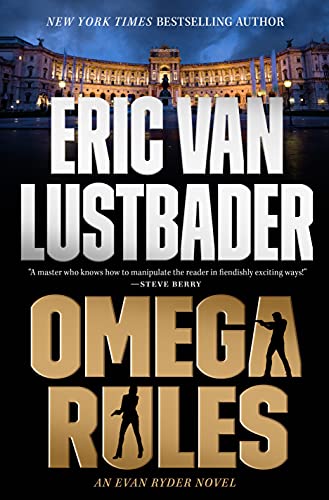
Omega Rules by Eric Van Lustbader
We’re about to see a spate of threats-against-democracy thrillers hitting the bookshelves, and all of them will have a hard time measuring up to Eric Van Lustbader’s Omega Rules (Forge).
That’s due in large part to Evan Ryder, typical rogue operative of, in this case, the Defense Department. Ryder is distinguished not only by the fact that she’s a woman, but also relentless and fearless. She’s going to need both those defining qualities to foil a plot aimed at destabilizing the entire Western world, only to find the plot’s perpetrators are ghosts from her own past who are part of a cult-like movement that calls itself Omega. Evan finds the democratic world perched on the tip of a pin, and she alone can stop it from slipping off forever.
Conspiracies are at the root of all such tales, and few writers are more accomplished in staging and building credible ones than Lustbader. We are putty in his hands as she shapes Omega Rules into a seismic shock of a thriller.
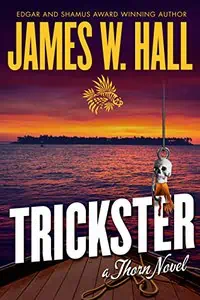
Trickster by James W. Hall
James W. Hall, long one of our best writers, rolls the dice and rolls a seven with Trickster (Dead Last Press), his sixteenth, and potentially final, book in his brilliant series featuring the enigmatic loner known only as Thorn.
The gamble Hall takes here, unprecedented in the annals of thriller fiction, is to postulate that all of Thorn’s bizarre encounters, twisted relationships, and crime-thwarting heroism, has been the concoction of a single, similarly enigmatic source, the yin to Thorn’s yang. A manipulator with almost magical powers who lives to see the brazen Thorn destroyed. For his part, Thorn just wants to be left alone to, as usual, fashion his elegant fishing lures. Also as usual, though, when danger comes calling, he’s there to answer. And this time it’s to make the rest of his life far less eventful than his first half century.
In Trickster Hall has fashioned an allegory of sorts, a classical tale of a man confronting his own fate in a battle as surreal as it is scintillating and stupendous. Hopefully, we will hear from Thorn again, but we will definitely be hearing from Hall.

Strand Magazine by Strand Magazine
Andrew Gulli from the famed “Strand Magazine” has done it again, following up his long string of publishing undiscovered works of mystery masters with two more short stories from none other than Shirley Jackson, author of the famed The Lottery.
The two stories, Charlie Roberts and Only Stand and Wait (Strand Magazine) are deceptively short, sweet, simple, and composed almost entirely of dialogue. “Only Stand and Wait” features a blind man given a chance to see for the first time with shocking results, while “Charlie Roberts” follows a bickering couple in a tale where the centerpiece is an old pocket knife.
These stories further exemplify why Jackson is credited with inspiring so many of the tales contained in The Twilight Zone. That said, Only Stand and Wait has echoes of the brilliant Rod Sterling-penned Eyes from that show’s cousin Night Gallery. And Charlie Roberts will remind genre aficionados of the John Collier classic, “The Chaser.” A wondrous trip into literary history you shouldn’t miss.
Purchase Strand Magazine here.

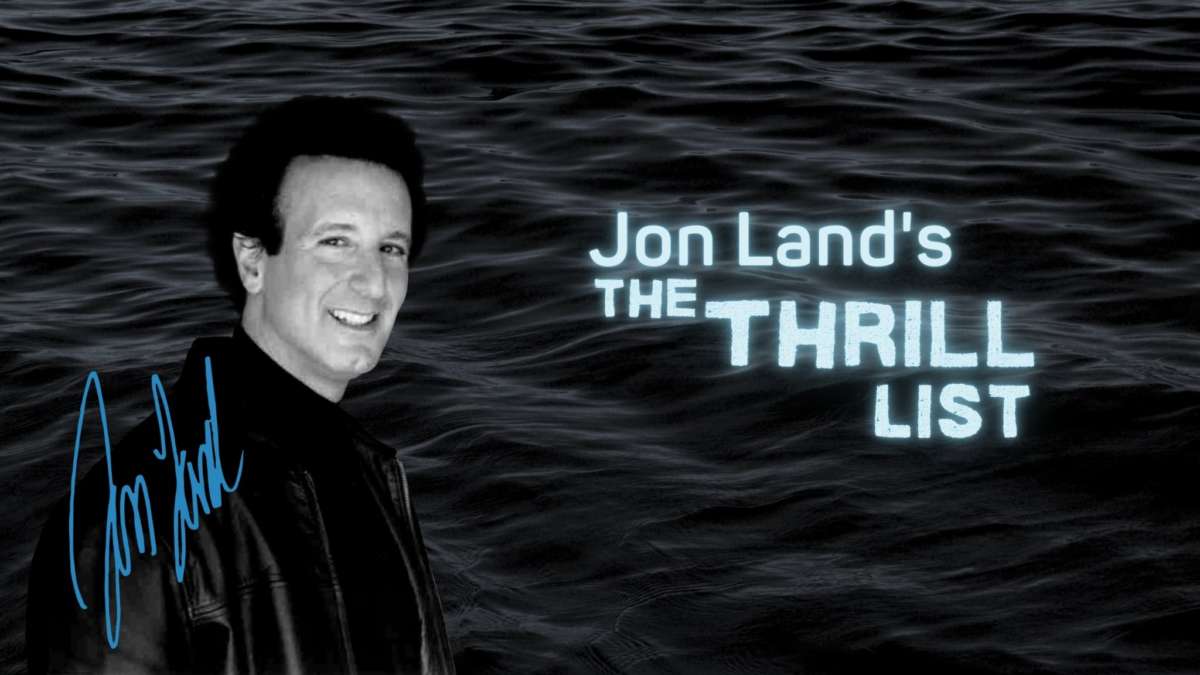



Do add Beyond Enkription (intentionally misspelt) to the thrill list. It is a must read for espionage cognoscenti and the first stand-alone spy thriller in The Burlington Files autobiographical series by Bill Fairclough. It’s a raw and noir matter of fact pacy novel that Len Deighton and Mick Herron could be forgiven for thinking they co-wrote. Coincidentally, a few critics have nicknamed its protagonist, Bill Fairclough aka Edward Burlington, “a posh Harry Palmer”.
This elusive and enigmatic novel is a true story about a maverick accountant (Edward Burlington in Porter Williams International aka Bill Fairclough in Coopers & Lybrand in real life). In 1974 in London he began infiltrating organised crime gangs, unwittingly working for MI6. After some frenetic attempts on his life he was relocated to the Caribbean where, “eyes wide open” he’s recruited by the CIA and is soon headed for shark infested waters off Haiti.
If you’re an espionage cognoscente you’ll love this monumental book but just because you think you know it all don’t surf through the prologue: you may miss some disinformation. If you felt squeamish when watching Jaws, you may find the savagery of the opening chapter upsetting, but it soon passes.
This epic is so real it made us wonder why bother reading espionage fiction when facts are so much more exhilarating. Atmospherically it’s reminiscent of Ted Lewis’ Get Carter of Michael Caine fame. If anyone ever makes a film based on Beyond Enkription they’ll only have themselves to blame if it doesn’t go down in history as a classic thriller … it’s the stuff memorable films are made of.
Whether you’re a le Carré connoisseur, a Deighton disciple, a Fleming fanatic, a Herron hireling or a Macintyre marauder, odds on once you are immersed in it you’ll read this titanic production twice.
For more detailed reviews visit the Reviews page on TheBurlingtonFiles.org website or see other independent reviews on your local Amazon website and check out Bill Fairclough’s background at Everipedia.org.